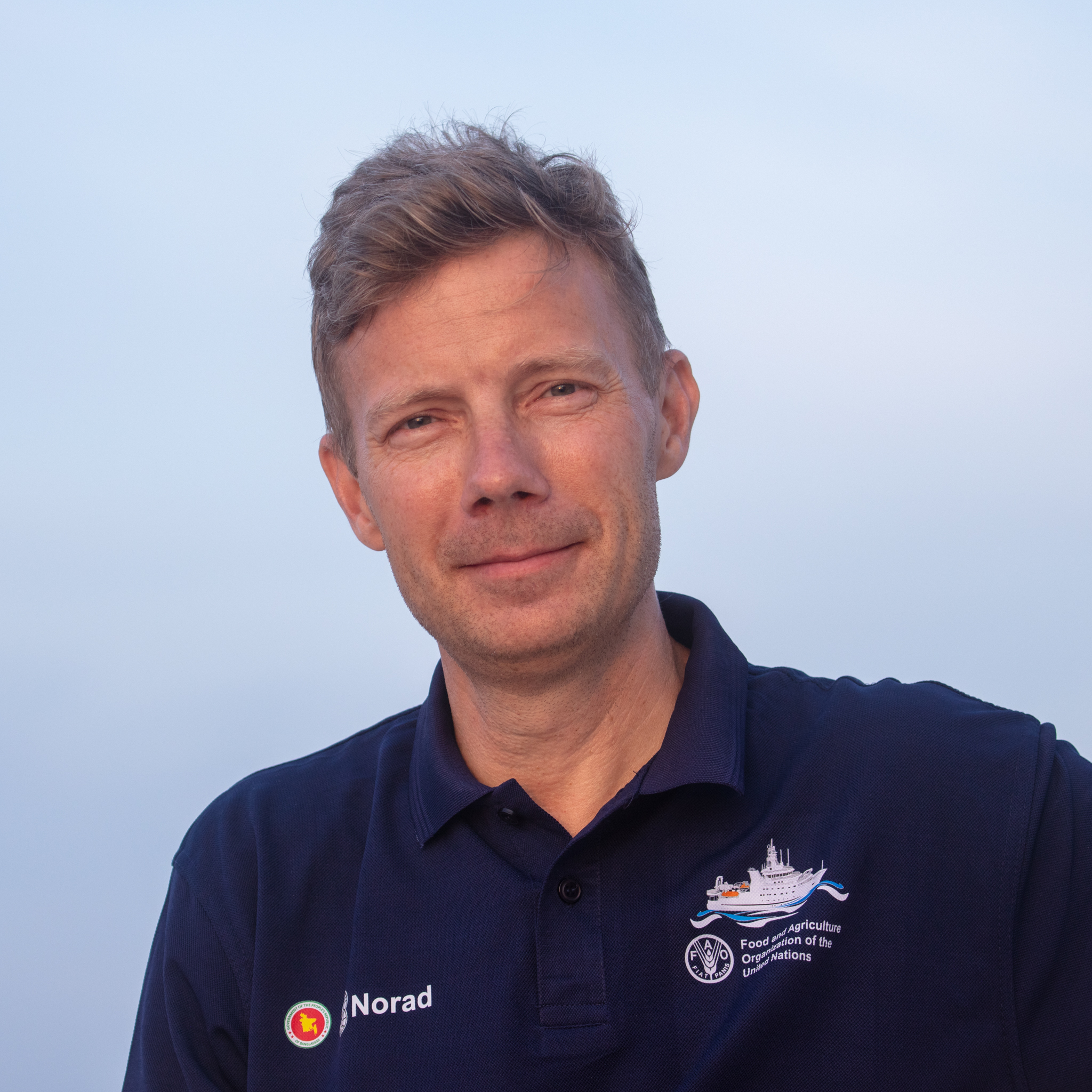
Dr. Erik Olsen leads the Sustainable Development Research Group at the Institute of Marine Research, Bergen, Norway, where he has been advancing marine science and sustainable ocean management since 1999. Born in Sweden to Norwegian and Swedish parents who worked extensively in developing countries, Erik grew up and was educated in Bergen, Norway.
Academic Foundation
Erik’s academic journey at the University of Bergen includes a BSc in biology (1995), MSc in fisheries biology (1997), and PhD in fisheries biology (2002), with his doctoral research focusing on innovative age determination methods for minke whales.
Research Leadership & Global Impact
Since completing his PhD, Erik has become a internationally recognized leader in ecosystem-based marine management. He pioneered the development and implementation of ecosystem surveys in the Barents Sea through groundbreaking collaboration with Russian scientists from PINRO, and has successfully transferred these innovative approaches to developing nations including Mozambique, Sudan, and Kenya, through comprehensive surveys and capacity-building programs.
International Ocean Governance Pioneer
Erik played a pivotal role in developing Norway’s world-renowned Integrated Management plans, beginning with the Barents Sea, followed by the Norwegian Sea and North Sea. This groundbreaking work in ecosystem-based marine spatial planning has garnered worldwide attention, leading to numerous invitations to present Norway’s innovative planning approach at high-level scientific and governmental meetings, including the United Nations.
Scientific Leadership & Global Collaboration
From 2009-2013, Erik served as elected chair of the ICES Science Committee Steering Group on Human Interactions on the Ecosystem, and later co-chaired the ICES Working Group on Integrated Assessment of the North Sea (WGINOSE) from 2017-2021. He has chaired multiple international workshops on Marine Spatial Planning and serves as a trusted reviewer and advisor on ocean governance issues globally.
International Experience & Innovation
During his tenure as visiting scientist at the NOAA Northeast Fisheries Science Center in Woods Hole, Massachusetts (2013-2015), Erik advanced the scientific foundation, tools (including the Atlantis ecosystem model), and methodologies for ecosystem-based management and marine spatial planning.
From 2015-2020, as Head of the IMR Demersal Fish Research Group, Erik led the strategic initiative on Reduced Uncertainty in Stock Assessment, significantly improving fisheries science methodologies.
Current Global Leadership Role
Since 2020, Erik has led the Sustainable Development Research Group, where he manages 20 international staff and oversees groundbreaking initiatives including:
- Principal Investigator of the UN Ocean Decade Project “ClimeFOOD” (2023-2030), addressing climate impacts on marine food systems
- Contributor to the EAF Nansen Programme, advancing ecosystem approaches to fisheries in developing countries
- Lead for Norway-India marine spatial planning collaboration, fostering South-South knowledge exchange
- Strategic Partnership Developer with the Norwegian Agency for Development Cooperation (Norad) for innovative bilateral projects across the Global South
Recognition & Impact
With 46+ peer-reviewed publications (h-index: 31) spanning marine mammal biology to ecosystem modeling and ocean governance, Erik’s research has contributed to shaping international marine policy. He served on the Norwegian National Committee for the UN Ocean Decade (2021-2025) and was a co-chair for the UN Ocean Decade Vision 2030 Working Group on “Sustainably Feed the Global Population” (2023-2024).
Erik’s multidisciplinary expertise and commitment to global sustainable development continue to drive transformative change in how we understand and manage our ocean resources for present and future generations.
Research areas:
Capacity building and providing a science based for marine managment in developing countries
Future aquatic food systems
Ecosystem models
Ecosystem-based management (EBM)
Distribution, area use and conservation needs of marine mammals
Oil spill assessments and risk
CONTACT INFO
Erik Olsen
Head of Sustainable Development Research Group, IMR
eriko@imr.no
erik.olsen@protonmail.com encrypted email
Mobile: +47-934 39 256 (NOR)